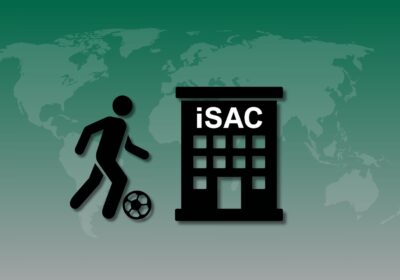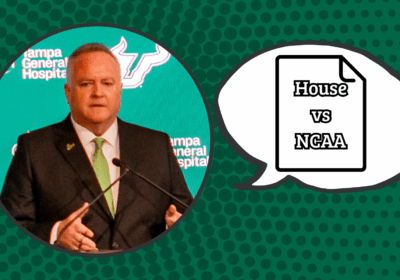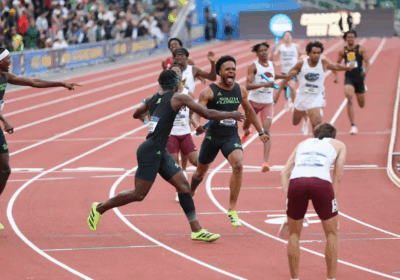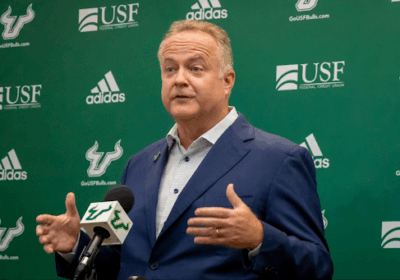Kelly, Scott address on-campus stadium at Coaches Caravan
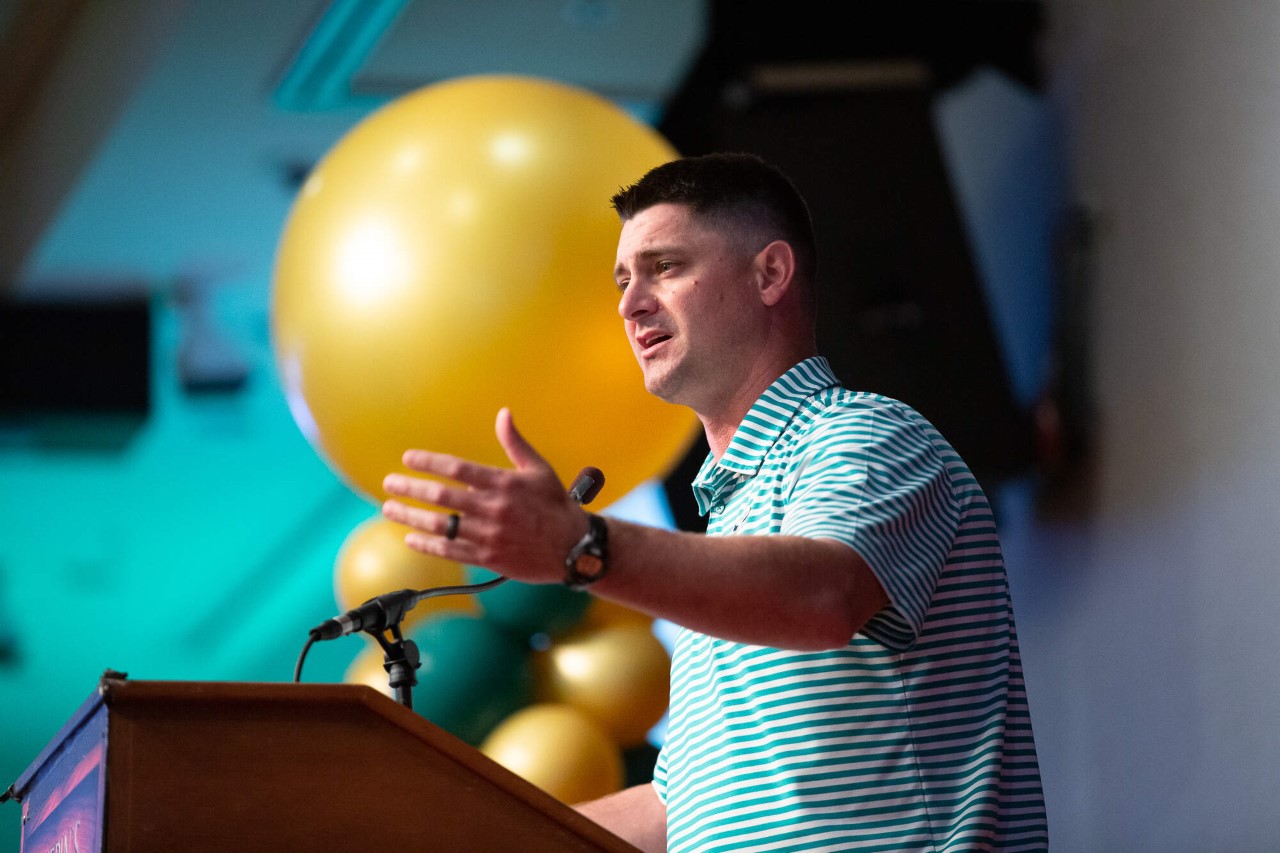
Every nugget of information about the upcoming on-campus football stadium is big news at the moment, and more was revealed at the USF Coaches Caravan on April 21.
While Vice President of Athletics Michael Kelly said the stadium is still in a pre-planning phase, he confirmed the university’s five-year strategic plan includes Athletics in its core commitments for the first time ever.
“It’s not to say people weren’t supportive before, but it was always just implied,” he said. “We were like ‘Why not just say it?’ If Athletics is at the forefront of this university and this supports our constituents, our student-athletes, then say it.”
The plan was announced by President Rhea Law in January and will go into effect July 1. With explicit backing from the Board of Trustees, the next step in the process is the design phase, which Kelly said will take a couple of years. The construction phase is expected to take the same amount of time, thus the projected opening year of 2026 or 2027.
USF’s current deal with Raymond James Stadium is set to expire in 2027, but the university has considerable flexibility with the Tampa Sports Authority (TSA) for its move-out date, according to Kelly.
“Even if we had to extend [the lease], I’m optimistic we could do that,” he said. “More likely, if we had to [terminate early], there’s a 24-month notice if we had to vacate before our term was over, and that would be permissible. So I look at it as we’ll probably notify as soon as we start the construction process.”
For now, the pre-planning phase includes a financial plan to pay for construction, which is expected to cost anywhere between $250 million and $400 million, according to The Athletic.
Kelly said events like the Coaches Caravan are meant to drum up more private donations like the $5 million received from the Morsani and Vinik families, but he conceded it’s an unreliable source of income.
“We’re not going to be able to raise $200 million, $300 million of cash pledges for the stadium,” he said. “It’s going to be something we’re going to have to make the investment and the commitment of funds and again, that’s a challenge.
“It’s more of a situation where how much revenue can you attribute and put toward bondable revenue that’s permissible. As we all know, there’s strong limitations to what, if any, public money can be put to athletic projects.”
Coach Jeff Scott had less concrete numbers to speak on when he took the microphone, instead opting to emphasize the emotional lift and intangible effect the stadium would have on campus.
“I just had this vision of the students coming right down USF Holly Drive on game day and being able to be right there,” he said. “Just that atmosphere in the sense of pride and school spirit that really is missing on campuses where you don’t have a college football stadium.”
Even once those students and student-athletes move on, Scott argues the stadium would serve as a legitimate reason for former Bulls to return to campus and create new fans for several generations to come.
“Why do alumni come back to the University of Florida seven times a year? No offense, they don’t come back to take a tour through the library,” he said. “They come to football games, they get to see their college friends, now their kids are playing with each other.
“It’s a touch point. It’s a connection point. It’s how you get that heartbeat, and I really think that’s the next step for us, so I’m excited.”
Scott finished his speech by showing a photo taken at USF’s first football game in school history at Tampa Stadium in 1997 with nearly 50,000 fans packed shoulder-to-shoulder, pointing to that scene as what he wants to recreate.
“Here in five years, we’re going to be taking another picture, and it’s going to be the first game at the new on-campus stadium,” he said. “We need to make sure the stadium is as packed as [the program’s first game].
“We don’t wait until five years from now to get everybody excited to go. We’re using these next five years right now to build it out.”


